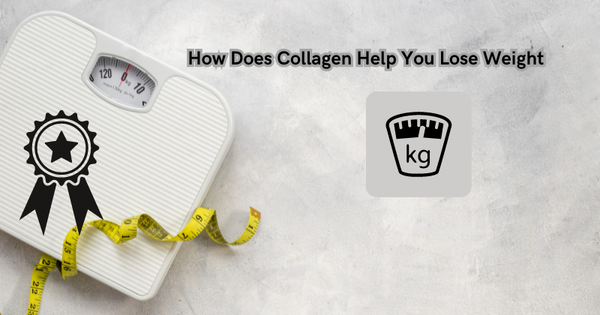Understanding the timeline for collagen to work its magic on hair is crucial for those seeking luscious locks and improved hair health. Collagen, known for its role in promoting skin elasticity and joint health, also plays a vital role in maintaining strong and vibrant hair.
The process of collagen replenishment and its effects on hair growth and quality can vary from person to person. Factors such as individual metabolism, diet, overall health, and consistency in collagen intake all influence how quickly results are noticeable.
Let's delve into the intricate relationship between collagen supplementation and hair health to uncover the timeline for experiencing the transformative effects on your tresses.
What is Collagen and Hair Health
Collagen is a protein found in the human body and makes up nearly one-third of the total protein content.
It's responsible for providing structural support and strength to various tissues and organs, including hair follicles. With age, the production of collagen decreases, leading to visible signs of aging, such as wrinkles, joint pain, and thinning hair.
Various factors, including genetics, diet, and stress levels, determine hair health. Collagen plays a crucial role in maintaining strong and healthy hair as it provides the necessary building blocks for hair growth.
Types of Collagen: Which is Best for Hair?
There are several types of collagen found in the body, but type I and type III are the most abundant in hair strands.
Type I collagen provides strength and support to connective tissues, while type III aids in maintaining elasticity and flexibility. Essential amino acids such as proline, glycine, and hydroxyproline are found in both types of collagen and are essential for hair health.
Hydrolyzed collagen supplements, also known as collagen peptides, are a popular choice for hair growth and health. These supplements contain both type I and type III collagen, making them beneficial for overall hair health. Collagen peptide supplements are broken down into smaller, more absorbable molecules, making them easily digestible and readily available for the body to use.
When it comes to choosing a collagen supplement for hair health, look for products that contain both type I and type III collagen.
This combination ensures that your hair receives the necessary support for optimal growth and health. Collagen supplements derived from marine or bovine sources are considered the best for hair as they contain high levels of both type I and III collagen.
How Collagen Affects Hair Growth
Collagen is a key component of the hair structure, providing strength and resilience to each strand.
It also plays a crucial role in hair growth as it is responsible for maintaining the dermal layer, where hair follicles reside. Without enough collagen, hair can become weak and brittle, leading to breakage and thinning.
When we consume collagen, it gets broken down into amino acids that are then used by our bodies to produce new collagen.
These amino acids are also essential for keratin production, which is the main structural protein in hair. Therefore, consuming collagen can directly impact hair growth and can lead to stronger, fuller locks.
How Long Does Collagen Take to Work on Hair
As mentioned earlier, the timeline for experiencing results from collagen supplementation can vary from person to person. However, there are some general guidelines that can help you understand when to expect changes in your hair.
Within the First Month
In the first month of taking collagen, most people notice improvements in their skin, such as increased hydration and reduced fine lines and wrinkles.
These effects can also indirectly benefit hair health by promoting a healthier scalp and providing a nourishing environment for hair follicles to grow. Additionally, some individuals may notice a reduction in hair shedding as collagen helps strengthen hair follicles.
After Three Months
After consistently taking collagen for three months, you may start seeing more noticeable changes in your hair's appearance and texture.
Due to the increased production of collagen and keratin, your hair may feel thicker and stronger and have an overall healthier shine.
Around Six Months and Beyond
At this point, you can expect to see even more significant changes in your hair, including increased growth, reduced breakage, and improved thickness.
Some people may also notice new hair growth in areas where their hair was thinning before. However, it's essential to continue taking collagen regularly to maintain these results.
With these general timelines in mind, it's important to note that consistency is key when it comes to collagen supplementation. To experience the full benefits of your hair, a daily intake of collagen is recommended.
Tips for Maximizing Collagen's Effects on Hair
- Maintain a well-balanced diet rich in collagen-boosting nutrients such as protein, vitamin C, and zinc.
- Stay hydrated to support collagen production and hair health.
- Manage stress levels as high cortisol or stress hormone levels can interfere with the body's ability to produce collagen.
- Be patient and consistent with collagen intake to see the best results for your hair.
How do I know if Collagen Supplement is working?
While the timeline for experiencing results may vary, there are some signs that can indicate collagen supplementation is working on your hair. These include:
- Reduced hair shedding
- Increased hair growth and thickness
- Improved hair texture and shine
- Decreased breakage and split ends.
Overall, incorporating collagen into your daily routine can have a significant impact on your hair health. By providing essential building blocks for hair growth and maintenance, collagen can help you achieve stronger, fuller, and healthier locks.
How Long to Take Collagen for Skin Health?
Collagen supplementation for skin health is a long-term commitment. As we age, our bodies produce less collagen, which can lead to visible signs of aging.
Therefore, it's recommended to continue taking collagen regularly to maintain the results and support healthy skin as you age. Additionally, incorporating other healthy habits, such as wearing sunscreen and staying hydrated, can also help preserve your skin's youthfulness and overall health.
Taking collagen supplements for skin health is not a quick fix but rather a long-term investment in your skin's well-being. How long does it take for collagen to work on the skin?
The timeline can vary, but generally, it takes about three months to see noticeable changes in skin appearance and texture. So, stick with your collagen regimen and be patient, as the results will be worth it in the long run.
Collagen Benefits for Overall Body Health
While we have discussed the benefits of collagen specifically for hair and skin health, its advantages extend beyond just those areas. Collagen is essential for overall body health and provides various benefits, including:
- Improved joint health and mobility
- Better digestive function
- Stronger bones and teeth
- Enhanced muscle mass and strength
- Skin aging prevention, skin benefits
- Improved wound healing
With its numerous benefits, it's no wonder that collagen has become a popular supplement for promoting overall health and wellness. Collagen synthesis decreases with age, so supplementation can help fill in these gaps and support our body's functions.
FAQs
Does collagen thicken hair?
Yes, collagen can thicken hair by promoting the production of keratin and strengthening hair follicles. Plus, it helps improve scalp health, which can indirectly lead to thicker hair.
Can you take too much collagen?
While collagen is generally safe, taking excessive amounts can lead to unwanted side effects such as digestive discomfort, nausea, and headaches. It's essential to follow the recommended dosage on your supplement's label or consult with a healthcare professional before increasing your intake.
Can I use topical collagen products for my hair?
While topical collagen products may provide some benefits for hair health, taking a collagen supplement orally is more effective. This method allows the body to absorb and utilize collagen more efficiently, leading to better results for your hair.
How long does it typically take for specific bioactive collagen peptides to start promoting hair growth?
The timeline for hair growth may vary depending on individual factors such as genetics, lifestyle habits, and overall health. However, many people start noticing changes in their hair within three to six months of consistent collagen supplementation.
Conclusion
Based on the insights gathered from various sources, the timeline for collagen to exhibit noticeable effects on hair growth appears to vary.
Some users report changes in hair texture within just a few weeks of collagen supplementation, while significant hair growth improvements may take around 2-3 months to become apparent. Consistency in collagen intake is emphasized as a key factor for long-term results.
Although scientific studies on collagen's direct impact on hair growth are limited, anecdotal evidence and user experiences suggest that incorporating collagen into one's routine can potentially lead to enhanced hair health over time.





